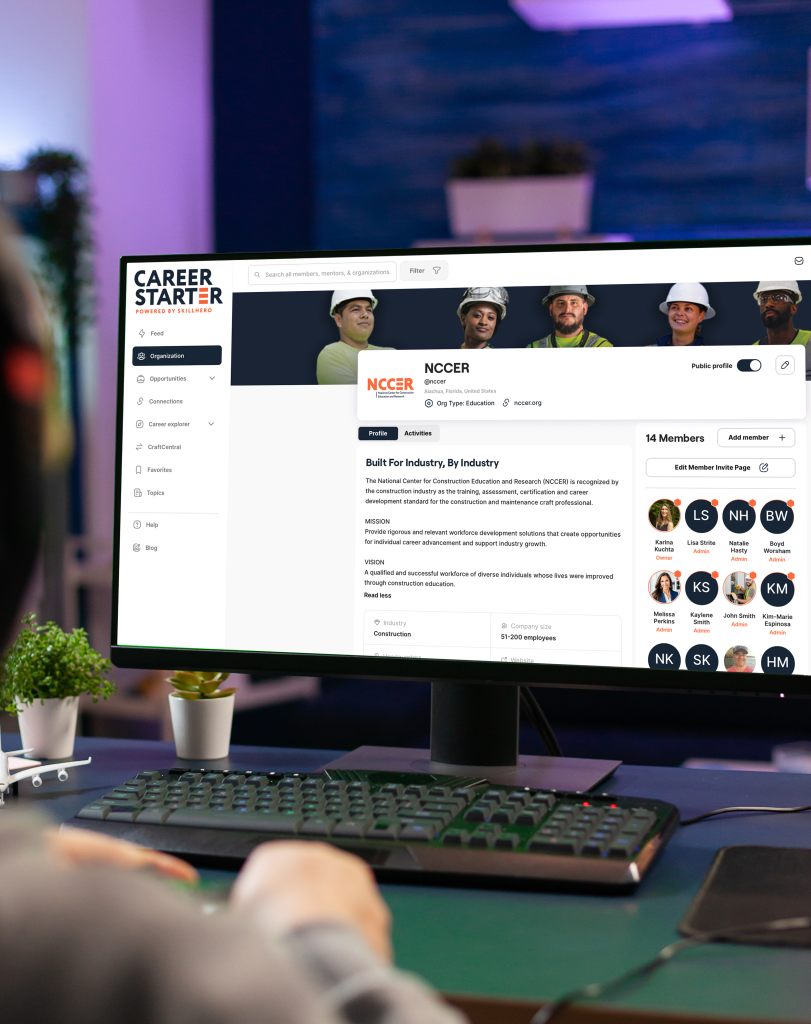You’re in the right place! No matter where young people are in their journey, the tips, strategies and resources below will help plan their future.
CareerStarter is a free online platform that takes you beyond career exploration to direct connections with employers, local training programs and job opportunities. It’s a connection hub designed to help you get started on a career pathway in construction that aligns with your interests.
Kickstart your career journey by learning about the construction industry, exploring the skilled crafts, building your resume, finding training programs or apprenticeships, and applying to construction jobs.
Continue learning about Career and Technical Education, Apprenticeships, Community and Technical Colleges, and Four-Year Degree options that are related to construction.
